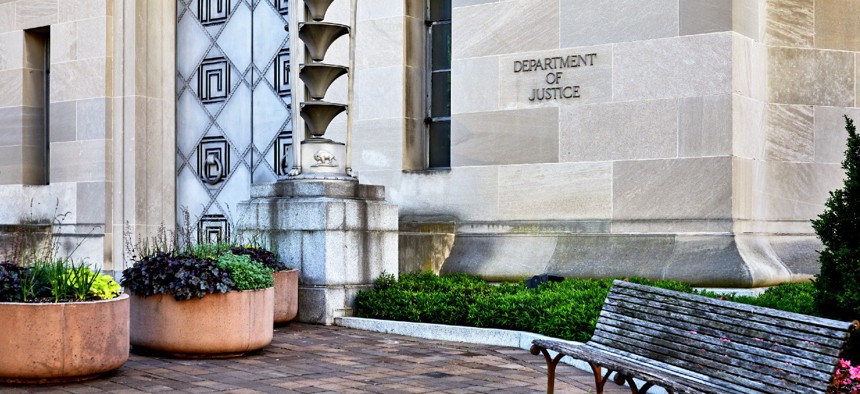
wingedwolf / iStock.com
Federal Prosecutors Call on Justice Dept. to Close Pay Gap With Other Lawyers
An employee association said assistant U.S. attorneys make as much as $40,000 less than other attorneys at the Justice Department, a gap that hinders the corps’ diversity goals.
An employee association representing federal prosecutors has called on the Justice Department to review its compensation policies and use of unpaid appointments, which the group says contributes to difficulty recruiting women and people of color.
Last month, the National Association of Assistant United States Attorneys, which represents more than 6,000 career federal prosecutors, wrote a letter to Attorney General Merrick Garland arguing that reviewing the department’s “inequitable pay system” should be part of its review to comply with President Biden’s recent executive order promoting diversity, equity and inclusion across the federal government.
At the crux of the association’s argument is the fact that assistant U.S. attorneys can make as much as $40,000 per year less than other lawyers at the department with similar experience and responsibilities. As a result, Lawrence Leiser, president of the association, wrote that young attorneys with sizeable student loan debt—who are disproportionately women and people of color—simply cannot afford to become federal prosecutors.
“While it is well known that the [pay] gap negatively impacts the retention of AUSAs, NAAUSA believes the discrepancy also makes a career as a federal prosecutor cost prohibitive for many diverse and underprivileged Americans,” he wrote. “The American Bar Association in their 2020 Law School Student Loan Debt Survey Report found Black, Hispanic, Asian and Multiracial law school students are more likely to borrow student loans and borrow student loans at notably higher amounts than their white counterparts . . . around $25,000 to $40,000 more in student loans on average.”
Additionally, according to the American Bar Association’s survey, more than 40% of those working in private practice and as corporate lawyers said they chose a job that “paid more” rather than in their desired field. And Leiser noted that pay is the sole pain point as measured by the annual Federal Employee Viewpoint Survey—although U.S. Attorney offices rank in the top half of nearly every metric, they were ranked 359th out of 407 agency subcomponents on compensation in 2020.
“Put simply, under-compensation is a principal barrier to maintaining a positive workplace in U.S. Attorney offices,” he wrote. “While student loans impact nearly all law school students, the issue uniquely impacts students of color and U.S. Attorney offices are not equipped to recruit diverse students who are most impacted by large debt burdens. It is averse to the goals of the president’s [diversity] order to continue relying on the goodwill and commitment of AUSAs to do their job without adequate and equitable compensation compared to their Main Justice colleagues.”
The association also suggested that the department’s appointment of special assistant U.S. attorneys, a practice by which attorneys from other agencies are temporarily made federal prosecutors and are often unpaid for their work, should be reconsidered under the provision of Biden’s order encouraging the end of unpaid internships across the federal government.
“Providing unpaid opportunities limits the pool of applicants to those who can afford to be financially dependent on another,” Leiser wrote. “Given the financial disparities in our nation, this often prevents diverse pools of applicants from even considering SAUSA opportunities. As President Biden’s executive order points out . . . properly compensating all federal employees ensures equal opportunity in federal employment.”







